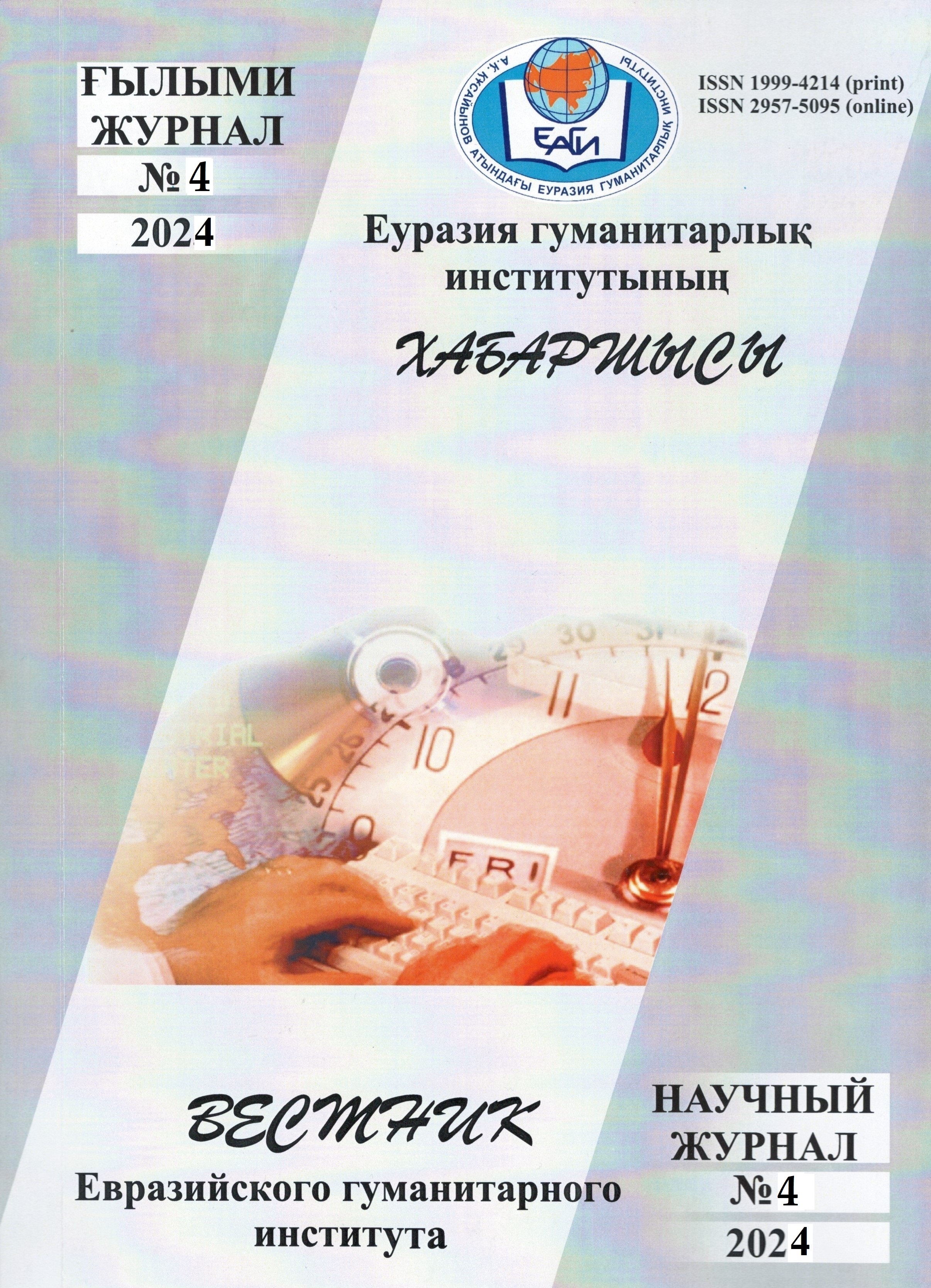*КОНЦЕПТ «ТӨРТ ТҮЛІК МАЛ» (ДОМАШНИЕ ЖИВОТНЫЕ) В УСТОЙЧИВЫХ СЛОВОСОЧЕТАНИЯХ
Keywords:
fixed expressions, , concept, ethnocultural names, subject images, history of the peopleAbstract
The aim of this article is to study the conceptual background in the formation of fixed expressions in the Kazakh language. The main idea of the research is to encourage young people to frequently use fixed expressions related to domestic animals.
The methodological basis of the study includes the works of foreign scholars: V.Maslov, V.M.Mokienko, L.Venuti, F.D.Schleiermacher, V.N.Teliya, I.V.Zykova, G.Khukhuni, V.V.Sdobnikov, G.Toury, P.Newmark, R.Bell, as well as theoretical conclusions of domestic linguists: I.Kenesbayev, A.Kaidar, E.Zhanpeisov, R.Syzdyk, M.M.Kopylenko, U.Aitbayev, S.E.Isabekov, N.Uali, M.T.Sabitov, Zh.Mankeeva, G.Smagulov, S.Satenov, G.Sagidol and others. In addition, examples from phraseological dictionaries and literary works were used.
The study employed methods of analysis, differentiation, systematization, and description of factual material as necessary.
The scientific significance of the work lies in the detailed examination of the national ethnic character of literary works and the comparison of fixed expressions in scientific research and dictionaries. The practical significance of the research results is their potential use in the preparation of lectures and seminars for the courses "Modern Kazakh Language," "Lexicology," as well as in special courses for the training of students and graduate students of philological specialties.


